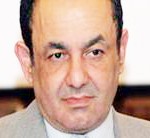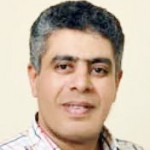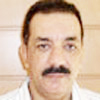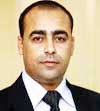In today’s column review Morsy comes in for his usual dose of criticism from the pundits, as does Salafist Sheikh Wagdy Ghoneim. In terms of domestic politics, proportional electoral lists and the draft constitution are considered, while on the international front US funding of Egypt is examined.
Amr Al-Shobaki
The catastrophe of the proportional lists
Al-Masry Al-Youm newspaper
Preparing proportional electoral lists for the coming parliamentary elections will have catastrophic repercussions, Al-Shobaki argues. The deteriorating status of existing political parties does not allow for composing compatible lists for the competition. The writer recalls previous conflicts between candidates and their parties that occurred during negotiations to decide who would head the party list.
Many candidates ended up switching parties, moving to ones which approved their names at the top of the lists. The idea of proportional lists prompted many candidates to prioritse their sense of leadership over their dedication to any particular party’s ideology or beliefs.
Looking objectively at past experiences, Al-Shobaki estimates that the Muslim Brotherhood’s Freedom and Justice Party, with its organisational skills would be the best qualified to write a proportional list with the fewest mistakes. The writer worries more about liberal powers, which are yet to develop cohesive unity. It is true that Egypt’s election experiences have proven the individual electoral system a massive failure after a series of forged voting scenarios. Al-Shobaki, however, claims proportional lists are not a better pick for a deteriorating political scene.
He suggests the individual electoral system be implemented in a third of the country’s constituencies besides an added system of proportional lists in different governorates of the city. In his viewpoint, having this blend of electoral systems would bring together the luxury of partisan programmes with candidates’ independent visions towards their respective constituency.
Alaa Al-Aswany
How to create a dictator?
Al-Masry Al-Youm newspaper
There are many signs that President Morsy will soon turn into a dictator, Al-Aswani believes. He criticises the president and lists the factors through which he believes a return to “Mubarak’s times” will be orchestrated. Al-Aswani regards Morsy’s rule as a regression to his predecessor’s authoritarianism. He refutes news reports highlighting Morsy’s overwhelming schedule that prevents him from taking days off with his family. The writer sarcastically states that the president does not take calls himself as long as a group of assistants constantly surround him, allowing him perform his duties from bed.
In his view, Morsy has “turned on the dictatorship machine” left over from “Mubarak’s corrupted factory.” Instead of focusing on appointing independent officials in his government, newspapers or the Shura Council, the president has merely replaced remnants of the ousted National Democratic Party with senior heads from his own Islamist group.
The writer notes that corruption has stretched to the extent of having police officers expressing apologies to Muslim Brotherhood figures for their previous maltreatment during Mubarak’s times.
Al-Aswani further criticises the president for being vulnerable to hypocrisy acted upon him since he has assumed presidency. He refers to an unknown international peace organisation that offered Morsy the 2012 peace award without waiting for the completion of his first year in power. The writer also recalls how various newspapers have exaggeratedly polished the president’s latest trip to China decorating it with “sugar-coated statements.”
Emad Al-Din Hussein
Is America the third party?
Al-Shorouk newspaper
Recent statements by Fayza Abul-Naga, the former minister of cooperation, that the United States offered three times the aid it would normally give to Egypt during the revolution, prompt Hussein to question America’s influence on Egypt’s sovereignty. As Abul-Naga made her statements in the context of attacking civil funds, Hussein regards her words as a warning to investigate the methodology of the once-ruling Supreme Council of Armed Forces. In Hussein’s view, Abul-Naga’s absence from the new government is a sign of difficult relations between the US and military forces. The writer then asks why SCAF would remain silent if it knows how influential America’s role in Egypt was, especially after the revolution.
Was the silence the price for US aid that supported the country during its transitional stage? Hussein recalls Egyptians’ solidarity with SCAF during attacks on foreign funded NGOs and wonders how public opinion started to negatively react to news of foreign employees traveling to their home countries safe and sound. The writer blames the general lack of transparency in the country and confirms that if an official had showed up to the people and explained the incidents, many of these questions wouldn’t have come to light. Hussein concludes by asking President Morsy and his government how they will handle the situation with the US regarding Abul-Naga’s statements.
Mohamed Essmat
A president from Mars
Al-Shorouk newspaper
Harsh criticism by Salafist Sheikh Wagdy Ghoneim of Egyptian artists worries Essmat. Ghoneim vilified many Egyptian actors in a YouTube video, slandering them for performing “hot scenes” in Egyptian cinema. Despite the Shiekh’s rights to condemn the profession, the writer rejects his unacceptable public naming and shaming without justifiable reasons. Ghoneim has described Morsy as a ‘president from Mars’ because he allocated two hours of his time to some of Egypt’s most prominent actors. Incidentally, Ghoneim’s extremist thought has led him to condemn the computers, technology and internet that he himself uses it to spread his ultra-conservative believes.
The writer addresses Ghoneim and advises him not to attack the west and their democracy, reminding him that thanks to universities in the west, many Arab and Muslim students have contributed to the development of many scientific and social fields. The main challenge, in Essmat’s view, is that Ghoneim and similar extremist sheikhs decline to leave their cocoon and continue to pontificate on society with their harmful radical thoughts. The writer concludes that such sheikhs, who claim to defend Islam and speak on behalf of the religion, are the primary enemies of the peaceful faith.
Ahmed Al-Sawy
Unconstitutional citizens
Al-Shorouk newspaper
The Constituent Assembly needs to bear in mind the right of equal opportunities of all non-Muslim citizens while writing the constitution Al-Sawy says. A well-drafted constitution should literally embrace all notions relating to ‘freedom of religion and belief,’ according to Al-Sawy. This does not only entail the consideration of the rights of Muslims, Christians and Jews, but also the basic rights of Baha’is and Shi’as to feel constitutional. The writer blames members of the body for focusing their attention on Islam with all its branches, while ignoring other non-official religions still practiced by many Egyptians.
Al-Sawy believes one of the main responsibilities of the Constituent Assembly is to reflect the genuine diversity of Egyptian society in every page of the constitution. The success of the Islamic state has always been characterised by its ability to include others of different beliefs and religions. Therefore, it shouldn’t be odd to think of all minor communities living in the country. If the Constituent Assembly fails to objectively mirror all sectors of society, Al-Sawy anticipates an incoherent constitution.








